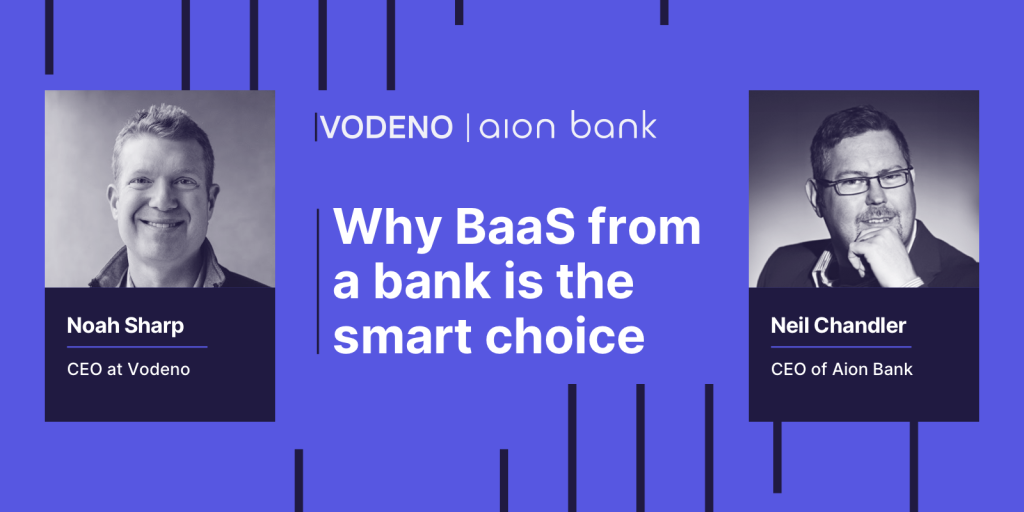By Ewa Hadasz, Head of Core Banking, Vodeno
Smart contracts offer immense potential to improve the way in which Banking-as-a-Service (BaaS) solutions are delivered. But this potential can only be realised if there is a good understanding among BaaS adopters of what smart contracts are, how they are deployed, and the benefits they can deliver. Let’s start with: what are smart contracts?

Smart contracts are ‘developer-friendly’ codes that are run on blockchain technology, enabling users to define and automate business processes by executing the terms from the contract when certain criteria are met. In the BaaS space, smart contracts play an important role in enhancing speed, flexibility and scalability when creating, modifying and delivering financial products and services to third parties.
At Vodeno, our proprietary, blockchain-based and cloud-native BaaS platform – the Vodeno Cloud Platform (VCP) – is a state-of-the-art core banking system designed with a customer-centric approach. It uses intuitive no-code/low-code methodology to eliminate the needs for complex coding, offering our clients the ability to accelerate time-to-market and drive operational efficiency. Smart contracts are at the heart of our technology.
Uses cases of smart contracts in BaaS

From KYC (Know Your Customer) and onboarding to payments and loans, smart contracts can be used across a wide array of products and solutions. In fact, virtually every BaaS product category or customer experience can be transformed through the implementation of smart contracts.
For example, credit cards: a smart contract is put in place between the BaaS provider and the adopter (business embedding a financial product into its ecosystem) to automatically issue a card once an application has been successful, and allow for the authorisation of transactions, as well as handle tasks like changing the card PIN or closing the card – all according to the terms of the smart contract.
The same goes for payments, lending, saving accounts and other products. Once a particular criterion has been met, an action is triggered. This automation ensures a frictionless flow of events between the BaaS provider, client, and the end-user. In turn, the end-user enjoys a faster customer experience.
How Vodeno uses smart contracts

VCP’s centralised ledger is the authoritative record of all client activities, including personal data updates, proxy assignments, product openings, transactions, and more. Activities are chronologically logged, encrypted with customer-specific keys and linked using blockchain algorithms. This guarantees data integrity and nonrepudiation, bolstering the security and credibility of all recorded actions.
Each client has its own encryption key, which we use to encrypt each row stored in the customer ledger. This ensures utmost security and complete transparency.
Additionally, our proprietary ‘Smart Contract Visual Designer’ has transformed the speed and ease at which we can create smart contracts tailored to each BaaS client’s specific requirements.
The combination of blockchain, encryption keys and the visual design functionality offer us the ability to work at unmatched speeds compared to legacy banking systems.
The benefits of smart contracts

So, what benefits can smart contracts deliver to BaaS adopters and their customers?
- Speed and efficiency
Smart Contracts are easy to learn for non-developers, and were created especially with business analysts in mind. Thanks to our Smart Contract Visual Designer, clients have complete control over the logic that makes up a smart contract, allowing flexibility and innovation in design and development without the need for programming knowledge. The Visual Designer lets us take a consultative approach with our clients to help them identify and define the best products for their business, then any modifications can be created by business analysts, without the need for developer time and resources. Smart contracts can facilitate everything from automated payments, fund transfers, lending management, identity verification, compliance reporting and savings account management.
- Trust, security and transparency
We understand that data security and integrity is paramount. As explained above, blockchain technology underpins all smart contracts, meaning all data that we store in the customer ledger is secured through data encryption – row by row, per client using their dedicated encryption key.
- Scalability and flexibility
Through smart contracts, we are able to develop many processes at the same time by different teams, and we can quickly address individual business processes. We can also share smart contracts between processes and teams, so, in time, our clients can build large ecosystems of related smart contracts, constantly refining processes and improving both efficiency and the customer experience. Additionally, each smart contract can be run on each client both independently and at the same time, so we can scale horizontally from one to many – this is one of the biggest advantages of smart contracts. The smart contracts we implement compose the ‘Smart Contracts Engine’, a set of basic business processes, which are ready to be used by the client or require a small adaptation to the client’s needs.
Putting business leaders in control
BaaS makes it possible for any business to directly and seamlessly integrate banking products into their ecosystem. And, smart contract technology is innovating how BaaS products are designed and delivered; offering speed & efficiency, trust & security and scale & flexibility. Through smart contracts, BaaS providers are able to collaborate with clients to deliver products in a flexible way that also offers the ability to scale.
At Vodeno, we take a customer centric approach to BaaS, and the unique way we employ smart contracts in our technology with our proprietary Smart Contract Engine and Visual Designer puts our clients in control, giving them the ability to launch the right financial products at scale and speed.
Arrange a call with a member of the team today to find out more.



